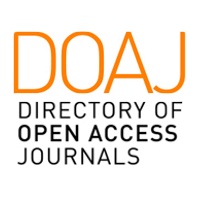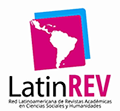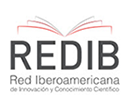Teacher training in Colombia: two projects, two trends 1874-1903
DOI:
https://doi.org/10.31639/rbpfp.v12i24.352Keywords:
female education, female teacher training, Normal School.Abstract
ABSTRACT This article is part of the macro research project called "Women in the construction of the Colombian nation" and refers to the professional preparation of women as teachers for all girls schools at two points in Colombia's history in 1874 and in 1903. For more than fifty years, the education of girls and young girls and the training as teachers for women depended on the demands imposed by the political power within two tendencies that, in principle, were irreconcilable: what was proposed by the radical liberals and, in turn, what was proposed by the conservatives. Part of this tension was observed in EscuelasNormales (a pedagogical school to learn how to teach) as the institutions organised by each of the two powers for the training of teachers within their respective political ideologies. The main question for this research study was the understanding of the meaning given to the education of female teachers by each of the highlighted political powers, therefore, which were the fundamental differences between the two educational tendencies, both liberal and conservative, referring to the education of female teachers? To answer this question, the Social History, the Decolonial Feminism and the gender category according to Joan Scott and her historical analysis, were considered as the theoretical background in order to read and evaluate such educational proposals. Taking into account the changes and political determinations in the country since the mid-nineteenth century and the first three decades of the twentieth century, the sources for the study were based primarily on the reading of the regulations regarding women during the period of the Constitutions of 1863 and 1886, the Civil Code of 1887; the Organic Decree of Public Instruction of 1870 -ODPI-, Decree 4 of 1874, Law 39 of 1903 and Decree of 1904, as well as the description of the most relevant values within the Colombian culture related to female behaviour and the Concordat between León XIII and Rafael Núñez on the role of the Catholic religion in education.
Downloads
References
BÁEZ OSORIO, Myriam. El surgimiento de las Escuelas Normales Femeninas en Colombia. Revista Historia de la Educación Latinoamericana, nº 4 (2002): 157-180
BERMÚDEZ, Q, Susy. El bello sexo. Las mujeres y la familia durante el Olimpo Radical. Santa Fe de Bogotá D.C.: Ediciones Uniandes, ECOES Ediciones, 1993
BERMÚDEZ, Q, Susy. Tijeras, Aguja y Dedal. Elementos indispensables en la vida del Bello Sexo en el Hogar en el Siglo XIX. Historia Crítica, nº 9 (1994): 21-26.
BERMÚDEZ ,Suzy, y Urbano Diana. Los espacios en los hogares de la élite santafereña en el siglo XIX desde una perspectiva de género. Historia Crítica 1, nº 19 (2000): 107-126
ESTADOS UNIDOS DA COLOMBIA. Concordato, entre león XIII y el presidente de la República de Colombia. 1887.
ESTADOS UNIDOS DA COLOMBIA. Decreto Ejecutivo Federal número 356 de 1874. 25 de agosto
ESTADOS UNIDOS DA. Constitución Política de 1863.
ESTADOS UNIDOS DA. Decreto Ejecutivo Federal Numero 356 de 1874 (27 de agosto). Sobre establecimiento de Escuelas Normales para mujeres.
GUICHOT-R, Virginia. Democracia y Educación. Análisis crítico en los albores del tercer milenio.» Pedagogía y Saberes, nº 25 (2006): 9-27.
HERNÁNDEZ, Gabriela. La Mujer en la Universidad de Nariño: 1935 – 1969. Pasto: Editorial UDENAR, 2004.
LAMAS, Marta. El género. La construcción cultural de la diferencia sexual. 4ª. reimpresión. Editado por PUEG- Programa Universitario de Estudios de Género. México: UNAM, 2013
LERNER, Gerda. La creación del patriarcado.» Editorial Crítica S.A., 1990.
LOAIZA CANO, Gilberto. El maestro de escuela o el ideario liberal de ciudadano en la reforma educativa de 1870.» Historia Crítica, nº 34 (2007): 62-91
MUÑOZ A. Carolina; SÁNCHEZ M, M.Mercedes. El Instituto Pedagógico Nacional para Señoritas: Una Institución Formadora de Docentes 1927 - 1955.Premio Nacional Francisca Radke 2000.
PEDRAZA, Sandra. La "educación de las mujeres": el avance de las formas modernas de feminidad en Colombia.» Revista de Estudios Sociales, nº 41 (Diciembre 2011): 72-83.
QUIJANO, Anibal. Colonialidad del poder, eurocentrismo y América Latina.» En La colonialidad del saber: eurocentrismo y ciencias sociales. Perspectivas latinoamericanas, de Edgardo Lander, 246. Buenos Aires: CLACSO, 2000.
REPÚBLICA DE COLOMBIA. Constitución Política de 1886.
REPÚBLICA DE COLOMBIA. Ley 39 de 1903.
REPÚBLICA DE COLOMBIA. Decreto 49 de 1904.
SCOTT, Joan. W. El género: una categoría útil para el análisis histórico.» En El GÉNERO La construcción cultural de la diferencia sexual, de Marta Lamas, editado por PUEG- Programa Universitario de Estudios de Género. México: UNAM, 2013.
SUÁREZ REINA, Adriana Yamile. La Representación de la Mujer y los Ideales del Pensamiento Colombiano de finales de siglo XIX y comienzos del Siglo XX: La Metáfora de la Falsa Inclusión.» La Palabra, nº 23 (2014): 33-41.
Downloads
Published
How to Cite
Issue
Section
License
Copyright belongs exclusively to the authors. The license rights used by the journal are the Creative Commons Attribution-NonCommercial 4.0 International (CC BY-NC-SA 4.0) license: sharing (copying and distribution of material in any medium or format) and adaptation (remixing), transformation and creation of material from the content are allowed.































